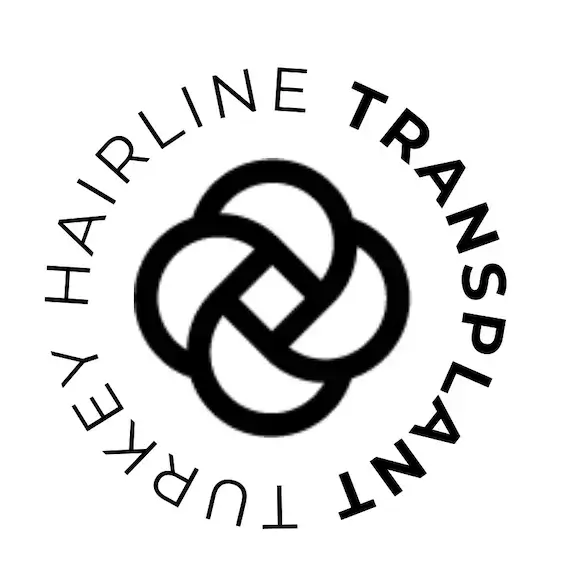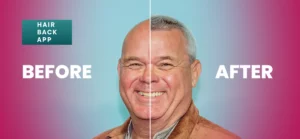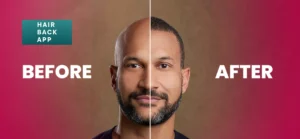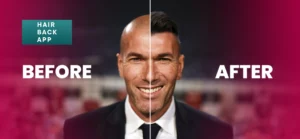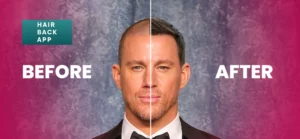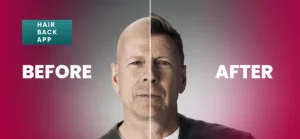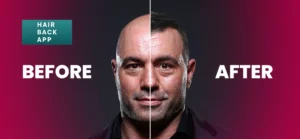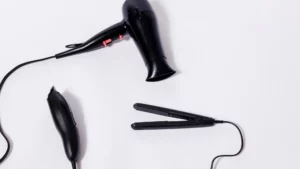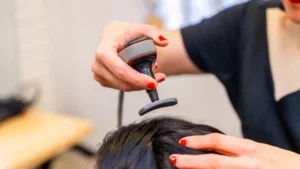Hormonal hair loss is another leading cause of hair loss today. My name is Emma Wright, your resident hair loss and restoration specialist. We’ll be discussing how to stop hormonal hair loss today.
Hair loss is a common concern for both men and women, and hormonal imbalances can often be a significant contributing factor. Understanding the underlying hormonal factors is crucial, whether it’s hereditary hair loss, traction alopecia, or conditions like PCOS.
While treatments like FUE hair transplants or anti-hair loss helmets exist, many prefer natural remedies to address hormonal hair loss.
In this comprehensive guide, we’ll explore effective ways to stop hormonal hair loss naturally, while also touching on post-transplant care and other relevant topics.
Understanding Hormonal Hair Loss
Before delving into remedies, it’s crucial to understand the role hormones play in hair loss. Hormonal imbalances, particularly fluctuations in androgens like testosterone and dihydrotestosterone (DHT), can disrupt the hair growth cycle.
DHT, in particular, can bind to hair follicles, leading to miniaturization and eventual hair loss. Additionally, hormonal changes can impact the production of other essential hormones like estrogen and progesterone, further exacerbating hair loss.
Hormonal imbalances, such as those seen in conditions like PCOS, can disrupt the hair growth cycle, leading to issues like male pattern baldness or scarring alopecia. Additionally, external factors like traction alopecia can worsen hair loss.
It’s essential to consider these factors when seeking solutions. The Sinclair Scale can help assess the severity of hair loss, guiding treatment decisions, including whether FUE hair transplant or bio FUE hair procedures are appropriate.

9 Natural Remedies for Hormonal Hair Loss
1. Balanced Diet
Nutrition is key to supporting hormonal balance and healthy hair growth. A diet rich in vitamins, minerals, and antioxidants can nourish hair follicles. Omega-3 fatty acids, found in fish like salmon and flaxseeds, can reduce inflammation, benefiting those with scarring alopecia or post-transplant recovery.
Include foods like leafy greens, fruits, lean proteins, nuts, and seeds in your diet.
2. Herbal Supplements
Saw palmetto, known for inhibiting DHT conversion, can benefit those experiencing male pattern baldness. Chasteberry, on the other hand, can aid in hormonal balance for conditions like PCOS.
Other herbs like horsetail extract, ginseng, and pumpkin seed oil may also support healthy hair growth when taken as supplements. However, it’s crucial to consult a healthcare provider before starting any herbal supplements, especially after FUE hair transplant or sapphire micro FUE procedures.
3. Stress Management
Chronic stress can disrupt hormone levels in the body, leading to hair loss. Incorporating stress-reducing techniques such as meditation, yoga, deep breathing exercises, or mindfulness can help manage stress levels and support hormonal balance.
Prioritizing self-care activities and finding healthy outlets for stress can positively impact hair health. This is especially relevant for those undergoing hair transplant procedures, as stress can impact recovery.
4. Scalp Massage and Essential Oils
Scalp massage can improve blood circulation to the hair follicles, promoting hair growth and thickness. Incorporating essential oils like rosemary, peppermint, lavender, or cedarwood into your scalp massage routine can further enhance the benefits.
These oils have been shown to stimulate hair follicles, strengthen the hair shaft, and reduce hair shedding. Dilute essential oils with a carrier oil like coconut or jojoba oil before applying them to the scalp to prevent irritation.
5. Hormone-Balancing Herbs
Certain herbs have hormone-balancing properties and can help regulate estrogen and progesterone levels in the body. Chasteberry, also known as Vitex, is one such herb that has been used for centuries to address hormonal imbalances in women.
It can help regulate menstrual cycles and reduce symptoms of conditions like PCOS, which can contribute to hair loss. Additionally, herbs like dong quai and black cohosh may also support hormonal balance and promote hair growth.
6. Lifestyle Modifications
Making lifestyle changes can also positively impact hormonal balance and hair health. Avoiding excessive alcohol consumption and quitting smoking can help stabilize hormone levels and improve circulation, which is essential for healthy hair growth.
Regular exercise is another important aspect as it can help reduce stress, improve mood, and promote overall well-being, all of which can contribute to healthier hair.
7. Adequate Sleep
Quality sleep is crucial for hormone regulation and overall health. Lack of sleep can disrupt hormone production, including those involved in hair growth and maintenance. Aim for 7-9 hours of quality sleep per night to support hormonal balance and optimize hair health.
8. Medical Treatments
In addition to natural remedies, there are medical treatments available for hormonal hair loss. These may include hormone therapy, minoxidil (Rogaine), and low-level laser therapy. However, it’s essential to consult with a healthcare provider before starting any medical treatment to discuss potential risks and benefits.
9. Avoid Harsh Chemicals
Certain hair care products containing harsh chemicals can damage the hair and exacerbate hair loss. Opt for gentle, sulfate-free shampoos and conditioners, and avoid excessive heat styling and tight hairstyles that can cause hair breakage.
Natural Ingredients For Hair Growth And Thickness
Here are some natural ingredients known for promoting hair growth and thickness:
- Coconut Oil: Rich in fatty acids and vitamins, coconut oil moisturizes the scalp, strengthens hair strands, and prevents breakage. Massage warm coconut oil into the scalp and hair, leave it on for a few hours or overnight, and then wash it out with a gentle shampoo.
- Castor Oil: Castor oil is high in ricinoleic acid, which has anti-inflammatory and antimicrobial properties. It nourishes the scalp, stimulates hair follicles, and encourages hair growth. Apply castor oil to the scalp and hair, leave it on for at least 30 minutes, and then rinse it out.
- Aloe Vera: Aloe vera contains proteolytic enzymes that repair dead skin cells on the scalp, promoting hair growth. It also acts as a conditioner, leaving hair smooth and shiny. Apply fresh aloe vera gel directly to the scalp, leave it on for 30 minutes, and then rinse it out with water.
- Onion Juice: Onion juice is rich in sulfur, which boosts collagen production, improves blood circulation to the hair follicles, and stimulates hair growth. Extract juice from onions, apply it to the scalp, leave it on for 15-30 minutes, and then wash it out with a mild shampoo.
- Eggs: Eggs are rich in protein, biotin, and other nutrients essential for hair growth. They strengthen hair follicles, reduce breakage, and promote thicker hair. Beat an egg and apply it to the scalp and hair as a mask, leave it on for 20 minutes, and then wash it out with lukewarm water.
- Rosemary Oil: Rosemary oil improves circulation to the scalp, stimulates hair follicles, and promotes hair growth. It also has anti-inflammatory and antioxidant properties that help prevent hair loss. Mix a few drops of rosemary oil with a carrier oil like coconut or olive oil, massage it into the scalp, leave it on for 30 minutes, and then rinse it out.
- Green Tea: Green tea is rich in antioxidants that promote hair growth and prevent hair loss. It also contains compounds that inhibit the production of DHT, a hormone associated with hair loss. Brew green tea, allow it to cool, pour it over the scalp and hair as a final rinse after shampooing, and leave it on for 10-15 minutes before rinsing it out with water.
- Avocado: Avocado is rich in vitamins E and B, which nourish the scalp and promote hair growth. It also contains healthy fats that moisturize the hair and prevent breakage. Mash a ripe avocado, apply it to the scalp and hair, leave it on for 30 minutes, and then rinse it out with water.
Incorporating these natural ingredients into your hair care routine can help promote hair growth and thickness, leaving you with healthier and more vibrant locks.
Conclusion
Hormonal hair loss can be distressing, but there are several natural remedies and lifestyle modifications that can help address the underlying causes and promote hair growth. By focusing on nutrition, stress management, scalp care, and lifestyle changes, individuals can support hormonal balance and improve the health of their hair.
However, it’s essential to be patient and consistent with these remedies, as results may take time to manifest. Consulting with a healthcare provider or a qualified herbalist can provide personalized guidance and ensure safe and effective treatment for hormonal hair loss.
